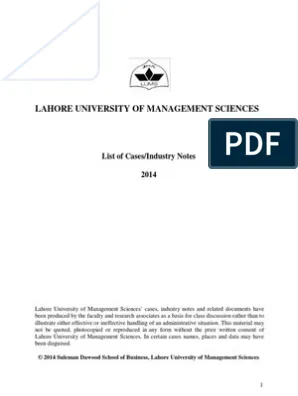In today’s turbulent world of identifying and training talents, Fatima Bhutto is the most striking example of cross-industry talent management. The paper presents a case study examining the multifaceted career path of one of the most celebrated Pakistani writers, journalists, and political activists, exploring how her distinctive skill set and knowledge have found application in several industries.
By looking at Fatima Bhutto’s career trajectory, we gain considerable insight into how progressive talent management agencies and companies exploit the strengths of multi-talented, inter-industry talent.
The Evolution of Talent Management in a Global Context
The ever-changing workforce of the world creates an obligation for redefinition in traditional approaches toward talent management. The identification and nurturing of individuals with varied skill sets require a new paradigm.
Thus, more and more talent management agencies are catching up when it comes to professionals who can move across industries without much hassle to offer different shades of fresh outlook and innovative solutions to complex challenges. Also, the cross-industry concept of talent management has won the hearts of many in recent years. This concept is based on:
- Identification of transferable skills
- Building adaptability and learning agility
- Building a growth mindset
- Cross-functional experiences
The aforementioned five belief points will help an organization move toward a more dynamic and resilient workforce to meet the challenges of today’s fast-changing business environment.
Fatima Bhutto: A Multifaceted Talent Profile
The career that Fatima Bhutto has chosen epitomizes the management of talent across industries. A member of an influential political family born into the soils of Pakistan, she created her own course as a writer, journalist, and activist. Her various experiences and skill set in these spheres make her a perfect case study to understand how mechanisms of talent management work in today’s environment.
Literary Accomplishments
The literary career of Fatima Bhutto forms the bedrock of her proposition value across industries. Some of her works include:
- “Songs of Blood and Sword” (memoir)
- “The Shadow of the Crescent Moon” (novel)
- “New Kings of the World” (non-fiction)
These books serve as testimony to her skills in telling stories of intrigue across genres, thus her being a multi-dimensional writer.
Journalism and Media Presence
Not only has Fatima Bhutto established herself as a published author of books, but also she has established a name as a serious journalist and commentator. Her writings have appeared in various publications, including:
- The Guardian
- The New York Times
- The New Statesman
This experience in journalism has whetted her skills in research, analysis, and concise communication which are highly valued across many industries
Activism and Public Speaking
Besides social and political activism, Fatima Bhutto has further expanded the use of her skill set. Public speaking engagements have found her articulating complex ideas and inspiring audiences, thus making her a sought-after voice on various platforms.
Cross-Industry Application of Fatima Bhutto’s Talents
The diverse talents of Fatima Bhutto open up opportunities for her in many sectors, so other talents may be cross-industry applied. A talent management agency would know just the kind of application her skills hold across industries, ranging from:
1. Media and Entertainment
Fatima Bhutto’s storytelling and media savvy beget a good assignment in content creation, screenwriting, or documentary production. Her unique perspective on international issues could be really interesting and off-the-beaten-track projects.
2. Education and Academia
With ample knowledge of history, politics, and culture, Fatima Bhutto will be able to project herself as a good lecturer or researcher in academic circles. The most helping factor in an academic environment will be her ability to hold audiences .
3. Corporate Communications and Public Relations
The potential skills she has developed in the field of journalism and public speaking can be applied effectively to the role in corporate communications. Her experience in storytelling and presentations before a wide range of audiences would be an invaluable asset in creating organizational messaging and brand storytelling.
4. Nonprofit and NGO Sector
Social cause-driven, she may channel her talent to the topmost leadership positions in non-profit organizations or NGOs. Her inclusion of talent makes her raise awareness and mobilize support on causes, which will satisfy most of the mission-oriented organizations.
Strategies for Effective Cross-Industry Talent Management
Cross-industry talent management, like Fatima Bhutto, requires certain strategies by the concerned talent management agencies and organizations, which are discussed hereafter:
1. Skill Mapping and Gap Analysis
It carries out comprehensive evaluations to establish their transferable skills, as well as their growth areas. It is a tool to point toward more specific training and development options.
2. Customized Development Plans
Create individual career paths that leverage one’s strengths while one works on their weaknesses. This will ensure ongoing growth and continued interest.
3. Cross-Functional Assignments
Let the talents work in projects across departments or industries. It broadens one’s perspective and adaptability.
4. Mentorship and Coaching Programs
Match cross-industry talent with seasoned mentors who can offer an understanding hand through new roles and industries.
5. Continuous Learning Initiatives
Support continued education through workshops, courses, and industry conferences that keep talent current and adaptable.
Challenges and Considerations in Cross-Industry Talent Management
While the benefits of cross-industry talent management are significant, there are challenges to consider:While the benefits of cross-industry talent management are significant, there are challenges to consider:
- Skepticism of non-stereotypical career choices
- Challenges in ascertaining skills that may be portable
- The possibility to dilute skills instead of focusing on the specialty
- Lack of adequate onboarding and support framework
It is therefore important for talent management agencies to be ready to combat such challenges in order to yield the best results for talent and the firms they deal with.
The Future of Cross-Industry Talent Management
It follows then that as the global economy continues to evolve, there will be increasingly diversified and versatile talent across industries. Talent management agencies that identify, develop, and place individuals such as Fatima Bhutto will be best placed to meet the needs of organizations with insight into the future.
Besides, with cross-industry talent management, success may well translate into a new mindset on behalf of both professionals and organizations when it comes to career paths and professional experiences. Instead of linear careers along one industry line, professionals will increasingly engage in diverse experiences that can let them build a wide, all-encompassing skills relevant across industries.
Final Thoughts!
Fatima Bhutto is another case that epitomizes the potential of cross-industry talent management in today’s dynamic professional world. Talent management agencies or organizations can develop a more resolute, innovative, and capable workforce by recognizing and bringing out talent from persons with different skills and experiences.
In the future, the ability to identify, develop, and deploy cross-industry talent will likely be one of the major differentiators in the global talent marketplace. With this approach, businesses can unlock new avenues for growth and success in an increasingly interdependent world.






